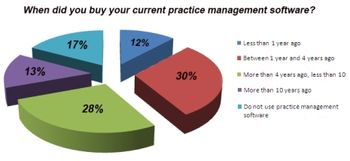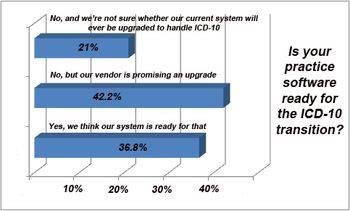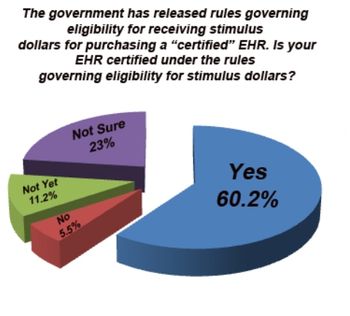
Is the shift to meaningful use worth the cost, both in terms of finances and operations at your practice?

Is the shift to meaningful use worth the cost, both in terms of finances and operations at your practice?

The sweeping changes to be enacted from last year's Affordable Care Act will not fully go into effect until 2014. However, medical practices must put into place several work flow changes that cost us real money now and the investments that we have made and will make leave us asking ourselves at the end of the day: Will the change will be good for our patients and our practice?

Bartering is a concept that is generally not practiced in today's times. In years past when patients had no money to pay their physician, it was common for them to bring an object other than money for payment: a chicken, a barrel of vegetables, etc.

What positive / negative differences has seeking meaningful use made?

It’s not news that meaningful use is changing the way we work, but it’s also changing the way we interact with patients, which changes our work flow.

The HITECH Act significantly strengthened aspects of the HIPAA Security Rule. If you are a 'Covered Entity' or 'Business Associate' it's time to get serious!

For the most part, I have found the reporting process to be very easily accomplished and have very few complaints or concerns at this point.

Robert Anthony, a health specialist with CMS, discusses Stage 1 of the federal incentive program for the meaningful use of EHRs.

First birthdays are momentous occasion - times to reflect on the past and consider what the future will bring. To discuss how far practices have come with EHR adoption and meaningful use, we called upon healthcare experts and EHR vendors.

Tell us what challenges you've faced in attempting to meet / meeting meaningful use via your EHR.

We have been in the process of preparing for meaningful use attestation. We have had to make some changes in how we practice. Not how we practice medicine, mind you - just how we play the game.

With government incentive dollars flowing and new tech tools like tablet computers and patient portals emerging, more practices are embracing a digital future. But for many, the old barrier to adoption - money - remains.

Physicians, if quality of care and productivity measures are not yet influencing your compensation, a new reimbursement model is likely headed your way. Health reform initiatives are significantly altering the way physicians - even those that remain independent - will be paid in coming years.

While practices are using patient portals to show meaningful use of EHRs, they can also help increase practice efficiency and improve the quality of care.

The feds have aggressively stepped up their fraud and abuse efforts. Your practice may play by the rules, but that doesn't guarantee it will escape federal scrutiny.

When it comes to practice management software, it appears more physician practices are aligning their purchases with another big health IT investment: their EHR.

The time has finally come. My practice has adopted the latest software download for reporting meaningful use of our EHR software. I have been feverishly working with compiling the necessary requirements for the attestation process. The data has been collected for the 90-day time period and I was all set to go.

In a little more than two years your practice will have to start seven-digit, alphanumeric ICD-10 codes. Even sooner, you’ll have to get acquainted with 5010.

Did the definition of healthcare fraud change?

If you are leaning more towards procrastination than preparation when it comes to readying for CMS' compliance deadlines for 5010 and ICD-10, you may want to start taking action. But when it comes to Stage 2 of proving meaningful use for your EHR, you might be in luck.

Getting an EHR to achieve certification is not always an easy feat for practices that had EHRs pre-meaningful-use, judging by the results of our 2011 Physicians Practice Technology Survey.

E-prescribing has not only improved the efficiency of this practice, it has improved quality at the same time.

The feds are cracking down on (even accidental) violations of data security rules. Here's how to avoid serious financial and administrative penalties.

Social media isn't just a tool for doctors to share health information. It's also a tool to establish your practice as a credible source for health-related information.

I have had sleepless nights, palpitations, and tantrums over the last couple of weeks just trying to get myself and my practice ready to for meaningful use attestation.